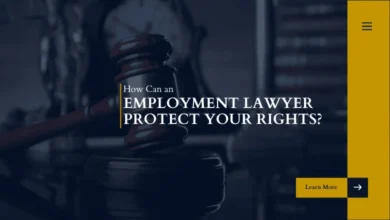The Ripple Effect: How Legal Issues Can Impact Relationships

Legal issues can have a profound and lasting impact on relationships. Whether it’s navigating the complexities of a DUI (Driving Under the Influence) case or dealing with other legal matters, the consequences often extend beyond the individual involved. Read this article to explore the far-reaching effects of legal issues on relationships, with a special focus on the impact of DUI incidents.
1. Strained Trust and Communication
One of the most immediate impacts of legal issues, including DUI, on relationships, is the strain they place on trust and communication. When one partner is facing legal trouble, it can lead to complicated and confusing feelings of betrayal, anger, and resentment in the other. Open and honest communication is crucial during this time to address concerns and fears constructively.
2. Financial Stress
DUI charges often come with hefty fines, legal fees, and increased insurance costs. These burdens can place significant strain on a relationship, especially if the couple shares financial responsibilities. Financial stress and anxiety can lead to arguments and disagreements, and it’s important to work together to manage the financial fallout of legal issues.
3. Emotional Toll
Legal issues can and will take an emotional toll on both parties in a relationship. Stress, anxiety, and feelings of uncertainty can affect the emotional well-being of everyone involved. Supporting each other emotionally is essential during these challenging times. Seeking therapy can also be beneficial in helping couples navigate the emotional turbulence associated with legal problems. Additionally, seeking advice from the expert drunk driving lawyer James E. Silverstein can alleviate any stress that a court case may bring.
4. Lifestyle Changes
DUI convictions often result in the suspension of driving privileges and mandatory participation in alcohol education programs. These changes can disrupt daily routines and lifestyle choices. Couples may need to make adjustments to accommodate these changes, such as finding alternative transportation or modifying social plans.
5. Strained Intimacy
The emotional and psychological stress that accompanies legal issues can affect intimacy within a relationship. Partners may find it challenging to connect emotionally or physically while dealing with the fallout from legal troubles. Open and understanding communication can help couples maintain their intimacy during these difficult times.
6. Legal Ramifications for DUI
DUI charges can lead to legal consequences, such as fines, probation, mandatory counseling, or even incarceration in severe cases. These legal obligations can disrupt normal routines and require significant time and effort to fulfill. Partners may need to offer support and assistance in meeting these obligations.
7. Impact on Future Plans
Legal issues, particularly those related to DUI, can impact future plans and goals for the couple. A DUI conviction can affect employment opportunities, travel plans, and even custody arrangements if children are involved. Couples should discuss how legal issues may alter their plans and make necessary adjustments together.
Conclusion
The impact of legal issues, including DUI, on relationships is undeniable. Trust, communication, finances, emotions, and daily routines are all vulnerable to the ripple effect of legal troubles. However, it’s essential to remember that a strong and supportive relationship can weather these challenges. Partners who face legal issues together, with empathy and cooperation, can emerge from the experience with their bond strengthened. Seeking professional guidance, such as legal counsel or therapy, can be critical in navigating the complexities of legal matters while preserving the health of the relationship.






